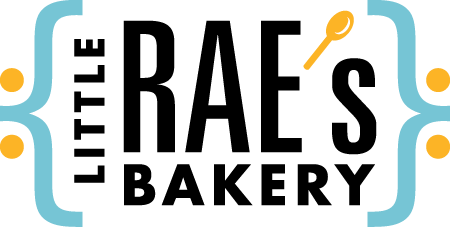The resurgence of home baking in 2020 was no coincidence. As lockdowns hit across the world and people found themselves dealing with isolation, quarantine baking officially became a thing. And it’s not particularly surprising, given that baking has been found to help relieve stress, anxiety, and even depression.
But why does baking make you feel better? It’s not just about getting to eat a yummy treat when you’re all done (although that is pretty great). Psychology plays a big role, too. If you’ve found yourself baking more these days or have been considering trying it out, here are the reasons we think that’s an excellent idea.
Baking helps you express yourself
Like any creative pursuit, baking is a form of self-expression that helps relieve stress. A recipe is just a recipe until a baker comes along to make it—pouring a little bit of their passion, creativity, and love into it. Baking can even be used as a form of communication, for those times when words don’t feel like enough. It can convey love, thanks, appreciation, and even sympathy.
Baking is a form of mindfulness
Mindfulness—we’ve all heard the word. Mindfulness is, simply put, being focused and aware of what you are sensing, feeling, and doing. As an exercise, mindfulness has been found to reduce stress and improve happiness. And, in our opinion, baking is the perfect practice in mindfulness. It requires close attention when measuring, handling dough, taste testing, and following a recipe. Because of the focus required, this can help ease feelings of anxiety, depression, stress, and more; instead of being caught in an unhealthy mental loop, you’re focusing on what’s right in front of you.
Baking for others is an act of generosity
The act of giving is one that fills us up with warmth, like a gooey chocolate chip cookie barely out of the oven. There’s nothing quite like baking for others—seeing the look on their face when they realize you’ve made their favorite recipe is one of the best moments—it’s a surefire way to spread love and feel it in return. There’s a special kind of community and connection that comes from sharing food with the people you love, especially when it’s done selflessly. These kinds of acts have the potential to increase feelings of wellbeing, relieve stress, and improve your connection with others.
Baking is an act of creativity
Studies suggest that regularly engaging in small acts of creativity can help you feel more relaxed, happier, and enthusiastic about life. In addition, creative acts can contribute to a feeling of personal growth. That creativity can take any form you want, but we are obviously partial to baking.

Baking is a sensory experience
Baking isn’t just about following a recipe. It’s also about experiencing the recipe with all five senses.
Touch is required when doing things like kneading dough, checking the softness of butter, shaping pastry, and decorating cookies.
Sight functions in a similar way, allowing you to determine if your dough has risen enough or if those croissants are a rich-enough brown yet.
Taste is needed along the way to ensure that flavors are balanced and complementary—and of course, it’s definitely needed at the end when you scarf down the first bite before anyone else!
Smell can help you know when that caramel is just right (or when it’s burned)—and it’s perhaps the biggest tease, as you are forced to wait for things to finish baking until well after you first started smelling the fruits of your labor.
Sound is less often used, but just as valuable when it comes to baking. Listening to cakes can tell you if they’re baked through, and who doesn’t find the sound of crackling bread right out of the oven therapeutic?
Senses like smell are also heavily connected to memory. If you have strong positive memories or associations with baking—perhaps your grandmother made you cookies every time you visited, or your father used to make fresh bread on Saturdays—then these memories and their positive emotions can be triggered by the experience of baking.
Baking offers repetition and rhythm
All recipes have some form of repetition to them. Kneading, mixing, measuring, shaping, and decorating all have a rhythm involved and can be a healthy way to reduce stress. Why? When you focus your mental energy on these simple (or complicated) physical motions, it can help you get into a zone where other distractions and stressors fall away. You’ll feel more connected to yourself and what you are working on, which can be uplifting.
Have you found that baking helps you feel better? We hope so! Remember that what you make doesn’t have to be big or elaborate unless you want it to be. A simple cookie recipe or a fool-proof quick bread that takes fifteen minutes to prepare can benefit you just as much (perhaps more) than an exotic recipe that takes all day. Experiment and do what suits you and your schedule best. The most important thing is to have fun while doing it!

